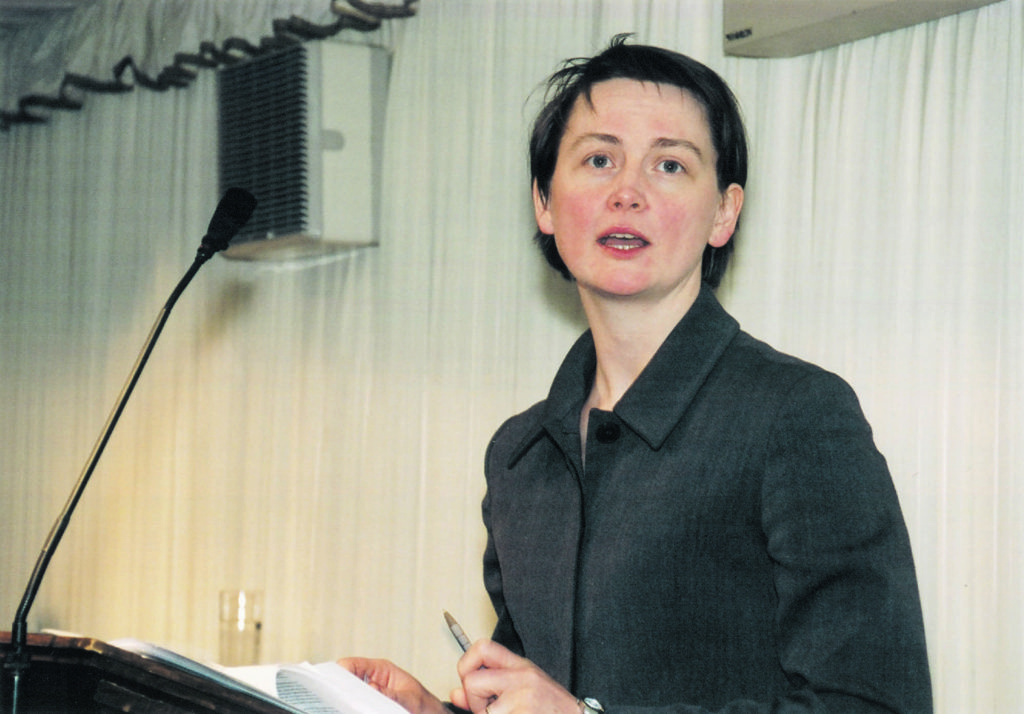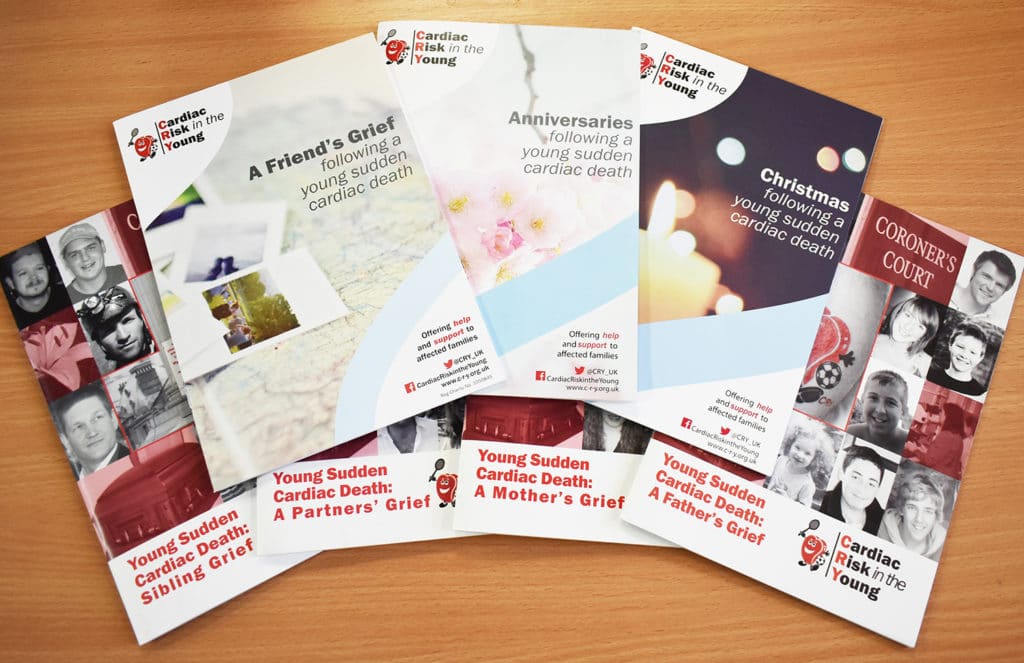After founding CRY in 1995, Alison Cox MBE became increasingly aware of the kind of support that was needed for families who had lost someone to young sudden cardiac death. This included both an explanation of the cause of death, the incidence of these tragedies, and bereavement support for those affected.
As Alison has explained, it was clear that families needed more help.
“It became increasingly clear to me that the distress of the family was greatly exacerbated by the lack of information available about what had killed their child. It was terrifying for them to learn that the condition that had caused the death was genetic, thus leaving other family members at risk which hugely compounded their suffering. Many also found that they needed to talk about what had happened and their feelings, and found it difficult to do this with other distraught family members who were grieving too.
“It was obvious that there was a desperate need to develop a programme that could both provide clear information about every condition that could cause a young sudden cardiac death, and widen the individual support available…
“More than anything I found that mums needed to talk to other mums to learn that it was possible to find a way to survive their terrible tragedy. I felt if we could train parents – affected mums and, if possible, dads too – to talk to other mums and dads, it could make a massive difference.”

2002 was an instrumental year in the development of CRY’s bereavement support programme. Alison approached the Department of Health (DoH) with a proposal to offer individual telephone support to newly bereaved family members by others who had received counselling training. This would enable those suffering to receive support from people with a unique understanding of their grief.
The DoH were incredibly supportive. At our 2002 Parliamentary Reception, the Secretary of State for Health, Yvette Cooper, announced that they would be giving us a three-year grant of £100,000 to fund the training of our first group of bereavement supporters.
“We are keen to support the CRY programme,” Yvette Cooper said, “and I am delighted to report that Section 64 funding has been granted to CRY of £100,000 over the next three years for its bereavement counselling. This is a very important initiative for CRY. The support which families give each other is crucial at this difficult time. I am pleased to see so many interested people here who want to know about this work.”
With this backing to get things underway, CRY’s telephone bereavement support programme began, and we have continued to train a new group of bereavement supporters every two years. The specific relations tackled by our supporters has broadened in the years since as well, and now includes partners and siblings. Trainee bereavement supporters complete a course over two years, carrying out their training over six weekends on alternate months each year. Once they are finished, they receive a British Association of Counselling Certification for Skills and Theory.
CRY’s bereavement supporters have gone on to provide support for hundreds of bereaved family members, while Alison has taken over 2,000 ‘first’ calls with supporters to answer any initial questions they have, such as the role of the pathologist and coroner in identifying the cause of death.

Once Steve Cox, now CRY’s Chief Executive, joined the charity in 2000, he continued to increase the use of CRY’s website and gradually expanded the materials available to supporters. We have now published a series of “grief booklets” for people learning to navigate their emotions following the sudden death of a friend or relative. This series includes individual booklets specifically for mothers, fathers, partners, siblings, and friends, as well as other booklets to help people feel less alone after a tragedy such as “Coping with Christmas after a Young Sudden Cardiac Death” and “Coping with Anniversaries following a Young Sudden Cardiac Death”. CRY’s booklets, which are published both in print and online, have now reached thousands of people who have been affected by a young sudden cardiac death.
In November 2017, our “Friend’s Grief” booklet was published as part of our #CRY4Friends campaign. This campaign was designed to highlight the grief felt by young people when they experience the death of a friend, and encourage young people to share their memories and talk about their grief.
A more recent development for CRY’s programme was the introduction of private Facebook support groups in 2017. We established groups for bereaved mothers, fathers, partners, siblings, aunts and uncles, grandparents, and friends, so people can connect, share their feelings and experiences, and talk with others who have suffered a similar loss. This online support network helps alongside the national bereavement support days we offer and annual events, like the Heart of London Bridges Walk (with 1,574 people taking part in 2019) and Heart of Durham Walk.
While we may be better known around the country for our screening events, and primarily known around the world in the medical community for our research, bereavement support has always been an absolutely essential part of CRY. And now, even though our office is closed due to the COVID-19 pandemic, our staff is still working from home and we are contactable as usual by email (cry@c-r-y.org.uk) and phone (01737 363222) if we can help in any way.
You can also find out more about the support services we have to offer on our website by going to www.c-r-y.org.uk/bereavement/.





